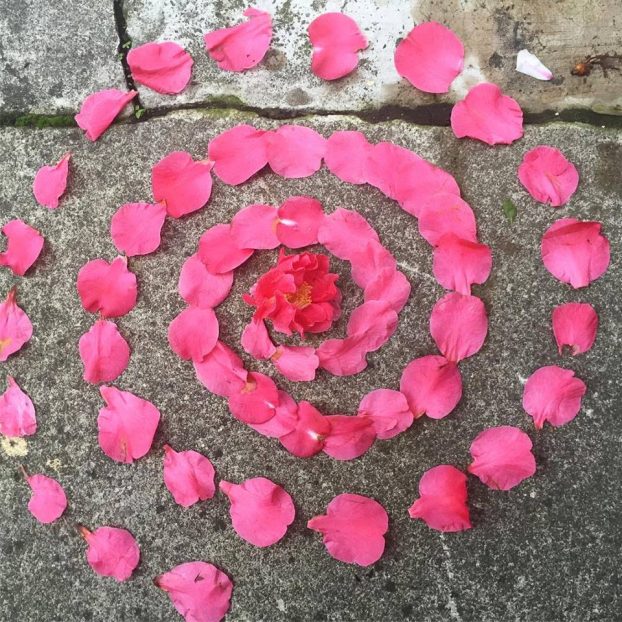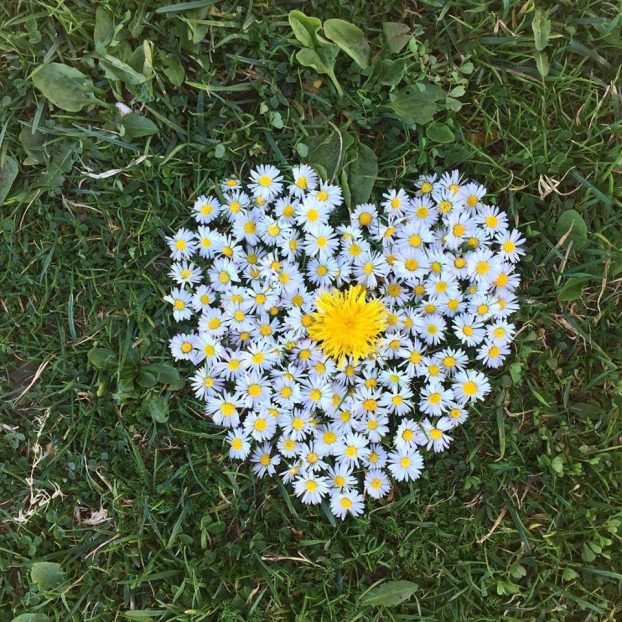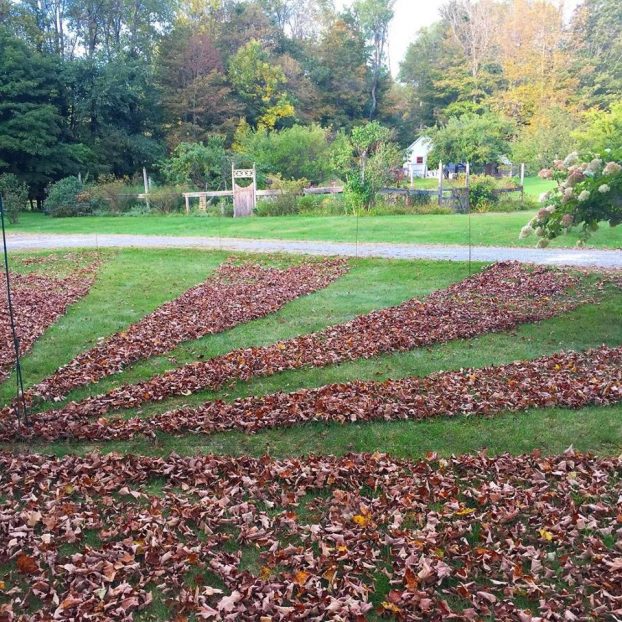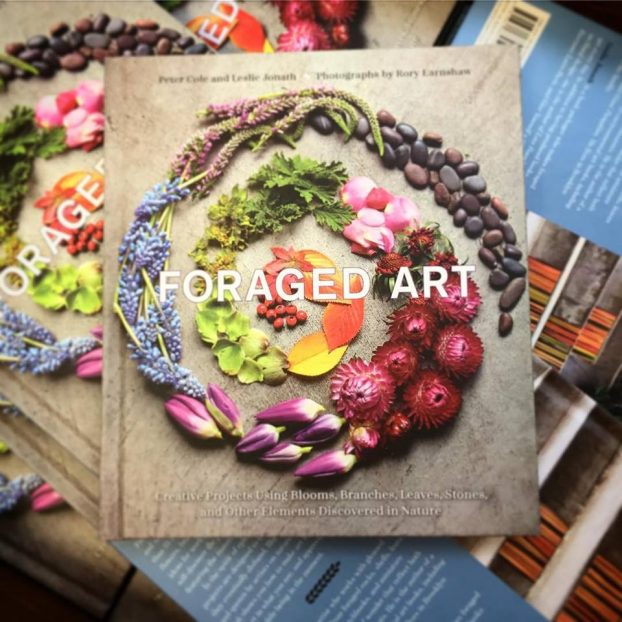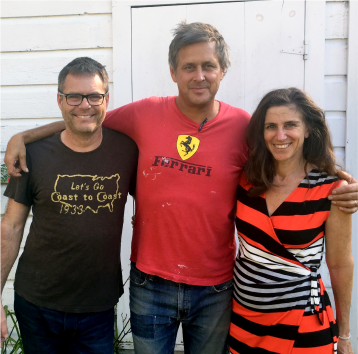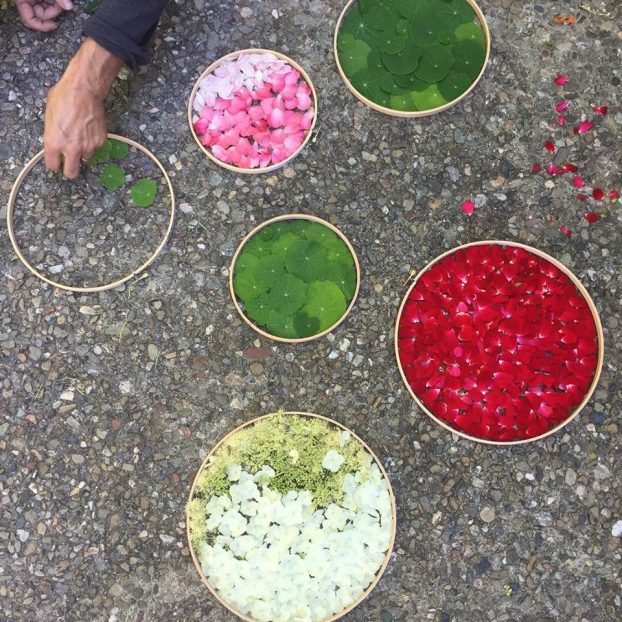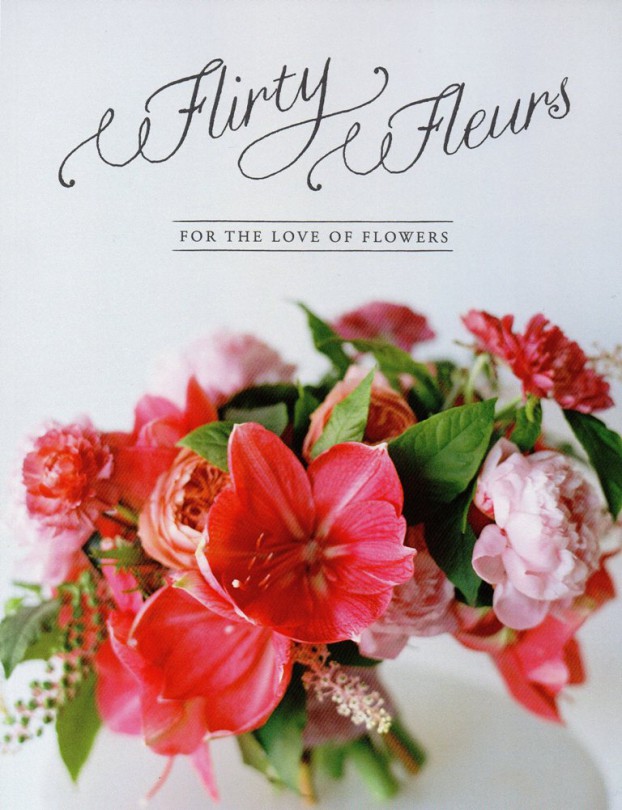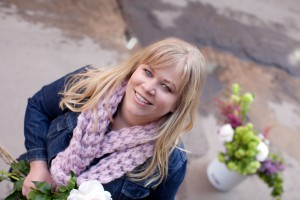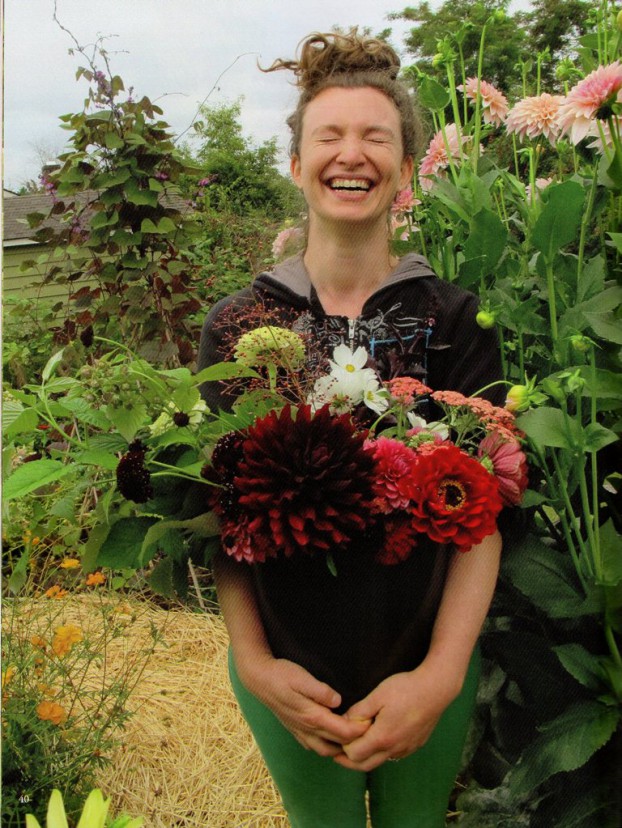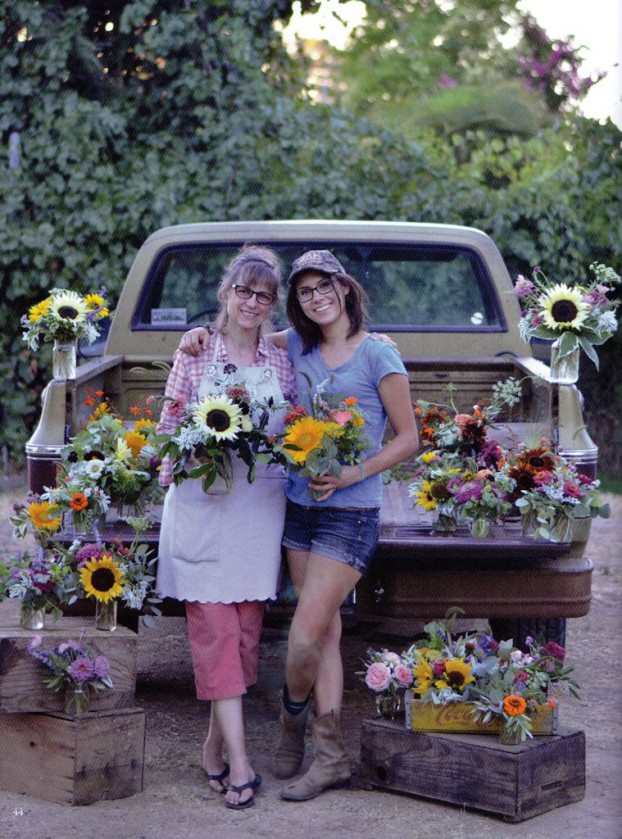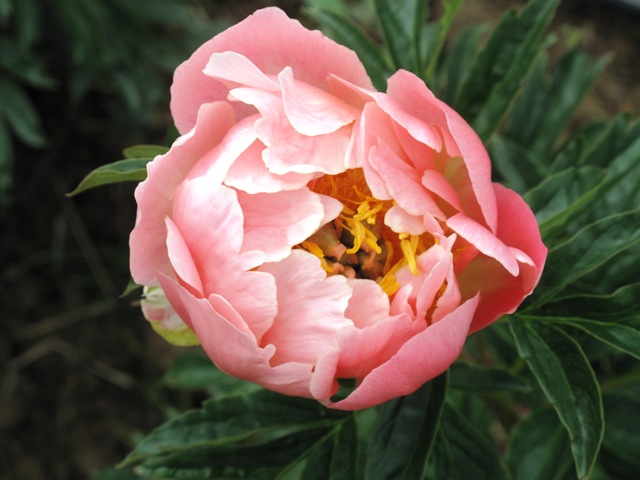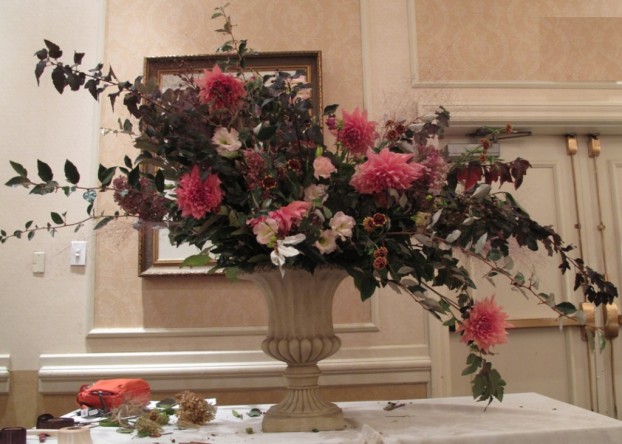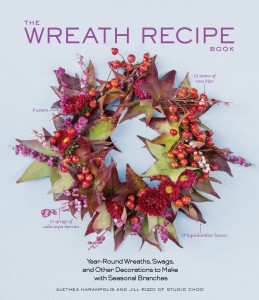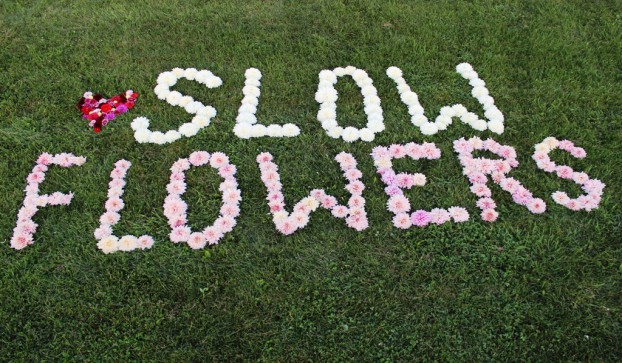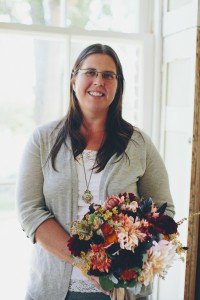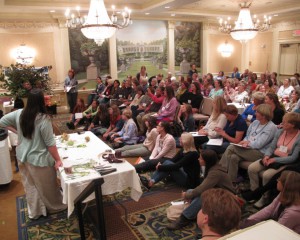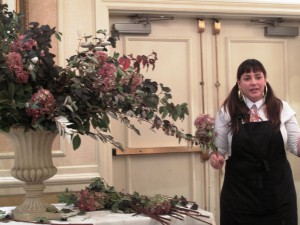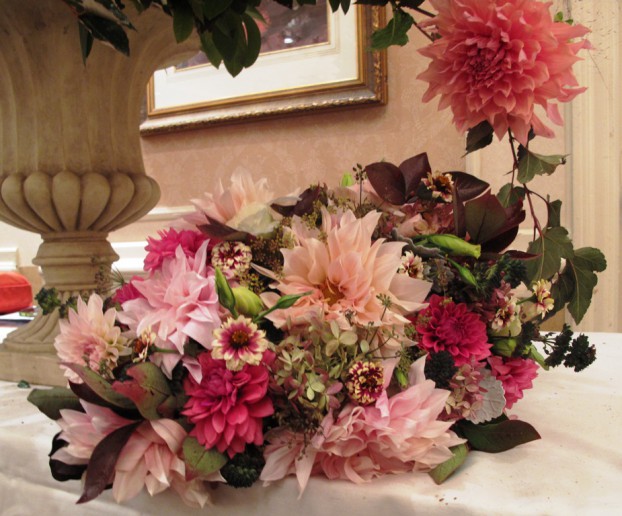Podcast: Play in new window | Download
Subscribe: Apple Podcasts | Podcast Index | RSS | More
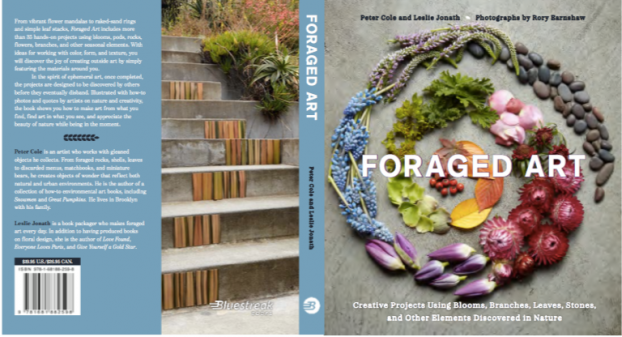 Today’s guest is Leslie Jonath, creative director of San Francisco-based Connected Dots Media.
Today’s guest is Leslie Jonath, creative director of San Francisco-based Connected Dots Media.
Leslie has over 20 years’ experience in book publishing, creative services, and media business development. And for any of you who dream of producing a book of your own, you’ll want to listen closely to her process and advice!
From 1991 to 2009, Leslie was an integral part of the editorial and development team at Chronicle Books, a Bay Area-based independent publishing house known for its lively, eye-catching and trend-setting books, gifts, stationery, and other consumer products about food, art, pop culture, gardening, design, lifestyles, and more.
As a Senior Editor in the food, lifestyle, and custom publishing categories, Leslie developed acquisition strategies, launched the successful garden and craft categories; acquired, produced, edited, and project-managed over 250 books across a variety of categories, including food, pop culture, crafts, lifestyle, art, architecture, memoir, and children’s projects.
She also created a cause-related publishing model for non-profit organizations, creating books to benefit Meals on Wheels of San Francisco; P.A.W.S., Bay Area schools and Next Course (which provided job and life skills training for incarcerated women).
As a Director of Creative Development, Leslie was a founding member and co-director of Chronicle’s Custom Publishing division, creating innovative products for cultural institutions, name-brand companies and retailers. Clients included BabyGap, Starbucks, Anthropologie, and the San Francisco Ballet.
The success of her work in this division led to a position as Director for Creative Services for the company’s Business Development team. As head of Creative Services, she and her teams conceptualized, produced and developed innovative “beyond the book” services for custom clients, including videos and other digital products.
While at Chronicle, Leslie teamed up with Ariella Chezar to create Ariella’s first book in 2002, Flowers for the Table, a guide to choosing seasonal flowers and a lesson in designing with the bud’s natural form. The book revolves around several seasonal occasions, from a summer wedding in the country to hot colored poppies on a cold winter’s night.
After leaving Chronicle Books in 2009, Jonath founded Connected Dots Media, working with clients in book packaging, video production, and concept and content development and production. And she reunited with Ariella in 2016 to create and publish Ariella’s beautiful new book, The Flower Workshop for Ten Speed Press. In addition to having produced books on floral design, Leslie is the author of Love Found, Everyone Loves Paris, and Give Yourself a Gold Star.
Leslie has also guided Erin Benzakein and Julie Chai on the award-winning Floret Farm’s Cut Flower Garden book. You’ve heard Ariella and Erin in the past on this Podcast.
So now, we’re going to hear from the woman behind those projects and so many others. I’ve invited Leslie today to talk about two personal book projects that have HER name on the cover as author.
The first, just out, is called Foraged Art, Creative Projects Using Blooms, Branches, Leaves, Stones, and other Elements Discovered in Nature (published by Bluestreak Books).
Leslie’s co-author is artist Peter Cole, an artist who works with gleaned objects he collects. From foraged rocks, shells, leaves to discarded menus, matchbooks, and miniature bears, he creates objects of wonder that reflect both natural and urban environments. He is the author of a collection of how-to environmental art books, including Snowmen and Great Pumpkins. He lives in Brooklyn with his family.
Foraged Art was photographed by Rory Earnshaw is a Bay Area-based photographer who shoots corporate annual reports, table-top, fine art, corporate/music industry portraits, product, packaging, lifestyle, editorial, music CD’s, as well as fine art landscapes.
In the spirit of land artists like Andy Goldsworthy, the book is as much about discovery as it is about creation. Leaves shaped like lips might inspire a face; an array of rocks might be become an eclectic mosaic; winter’s first snow might be carved into glowing luminaria.
Whether you love to look for heart-shaped flowers or want to make a peacock made with flower petals, readers will find great inspiration and joy in Foraged Art.
Art, meditation, and nature meet in this adult-focused activity book, with projects that take inspiration from the natural environment, using blooms, pods, branches, stones, and other natural elements. Divided into chapters by natural elements — flowers, leaves, rocks and pods, and more, the book encourages readers to forage and play outside using nature’s seasonal art box. Foraged Art is about making art from what you find and finding art in what you see.
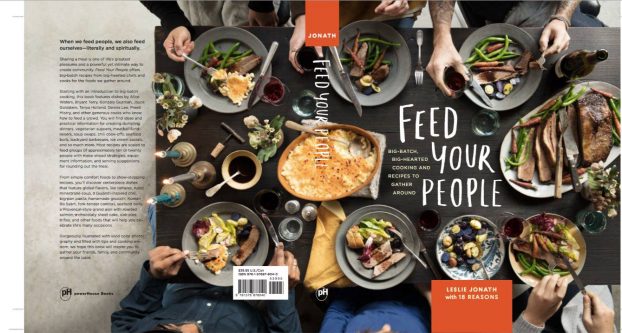 Leslie and I also discuss Feed Your People, an ambitious book that she has been working on for several years — from conception to completion.
Leslie and I also discuss Feed Your People, an ambitious book that she has been working on for several years — from conception to completion.
Feed Your People is a modern community cookbook. Leslie envisioned the need for Feed Your People after she realized that despite the popularity of dinner clubs, pop-up dinners, and holiday entertaining, there were surprisingly few cookbooks or resources that offer practical instruction on cooking for crowds.
To that she approached the community of big-hearted cooks and chefs—experts who cook for their communities — whose generosity inspires. Stories of their gatherings are accompanied by recipes with detailed information on equipment, make ahead strategies and tips cooking for groups from eight or to forty (and even fifty!)
As Leslie explains, on a deeper level, the book is about building and feeding community, and, fittingly, she teamed up with 18 Reasons–a beloved San Francisco-based organization that provides classes to low-income residents and hosts monthly community dinners.
She wants this book to inspire cooks everywhere to bring their communities together for a meal—no matter what the occasion. From a simple soup dinner to a pasta pot, whether using paper plates and fingers or cloth napkins, there are recipes around which to create a well-considered, delicious, and memorable event. She sees Feed Your People as a celebration of community, a guide that will encourage people everywhere to feed each other both literally and spiritually.
Here’s where and how to follow Leslie at her social places:
As Leslie encourages us, creating foraged art reminds us that life is beautiful in all of its stages – and that, if we look, we can see the grace in every moment.
I certainly feel that grace this week as many of you have reached out to thank me for this Podcast and how it has helped you. We have 57 five-star reviews on ITunes, which is so awesome. One fan just posted this review on iTunes, writing:
“Over the past few months, I’ve really enjoyed listening to your podcast. Insights and glimpses of what goes on with the Slow Flowers Movement is fascinating. As a 30-year veteran of the floral industry here in North America, it’s surprising that I haven’t been more aware of local growers. Thank you for encouraging the local farms to grow flowers that we can utilize so we can help spread the news of buying American grown flowers.”
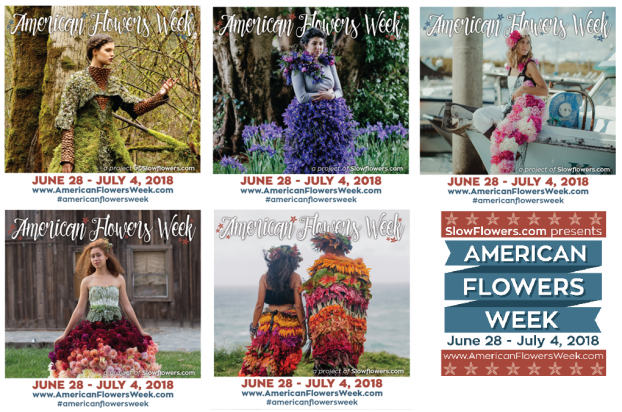 I’m encouraged by the amazing participation in our many opportunities to network, connect and educate — and this is a bountiful month for doing so. With American Flowers Week coming up on June 28-July 4, with the Slow Flowers Summit — our LIVE celebration of American Flowers Week taking place on Friday, June 29th in Washington, D.C., and with the many marketing and branding tools available for your use for free, please take advantage of this opportunity and join the community.
I’m encouraged by the amazing participation in our many opportunities to network, connect and educate — and this is a bountiful month for doing so. With American Flowers Week coming up on June 28-July 4, with the Slow Flowers Summit — our LIVE celebration of American Flowers Week taking place on Friday, June 29th in Washington, D.C., and with the many marketing and branding tools available for your use for free, please take advantage of this opportunity and join the community.
If you’re not on our mailing list, you can find a link to the June Slow Flowers Newsletter in today’s show notes — catch up on Slow Flowers members and their fantastic activities, too.
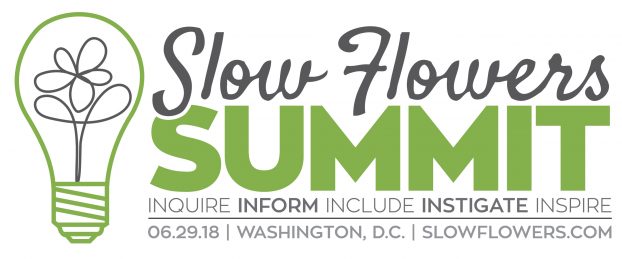 Please make you reservation for the Slow Flowers Summit. Our second annual Slow Flowers Summit takes place in the heart of American Flowers Week – and we have an inspiring lineup of speakers, gorgeous flowers, fun and interactive design activities and of course, a chance to stretch your imagination in a thought-provoking and stimulating environment.
Please make you reservation for the Slow Flowers Summit. Our second annual Slow Flowers Summit takes place in the heart of American Flowers Week – and we have an inspiring lineup of speakers, gorgeous flowers, fun and interactive design activities and of course, a chance to stretch your imagination in a thought-provoking and stimulating environment.
I am grateful to all our entire community of flower farmers and floral designers who together define the Slow Flowers Movement. As our cause gains more supporters and more passionate participants who believe in the importance of the American cut flower industry, the momentum is contagious. I know you feel it, too. I value your support and invite you to show your thanks and with a donation to support my ongoing advocacy, education and outreach activities. You can find the donate button at debraprinzing.com in the right column.
The Slow Flowers Podcast has been downloaded more than 324,000 times by listeners like you. Thank you from the bottom of my heart for listening, commenting, liking and sharing! It means so much.
Thank you to our sponsors who have supported Slow Flowers and all of our programs.
Florists’ Review magazine. I’m delighted to serve as Contributing Editor for Slow Flowers Journal, found in the pages of Florists’ Review. It’s the leading trade magazine in the floral industry and the only independent periodical for the retail, wholesale and supplier market. Take advantage of the special offer for a free trial issue.
Arctic Alaska Peonies, a cooperative of passionate family farms in the heart of Alaska providing bigger, better peony flowers during the months of July and August. Visit them today at arcticalaskapeonies.com.
Seattle Wholesale Growers Market, a farmer-owned cooperative committed to providing the very best the Pacific Northwest has to offer in cut flowers, foliage and plants. The Growers Market’s mission is to foster a vibrant marketplace that sustains local flower farms and provides top-quality products and service to the local floral industry. Find them at seattlewholesalegrowersmarket.com
Longfield Gardens provides home gardeners with high quality flower bulbs and perennials. Their online store offers plants for every region and every season, from tulips and daffodils to dahlias, caladiums and amaryllis. Visit them at longfield-gardens.com.
Syndicate Sales, an American manufacturer of vases and accessories for the professional florist. Look for the American Flag Icon to find Syndicate’s USA-made products and join the Syndicate Stars loyalty program at syndicatesales.com.
Johnny’s Selected Seeds, an employee-owned company that provides our industry the best flower, herb and vegetable seeds — supplied to farms large and small and even backyard cutting gardens like mine. Check them out at johnnysseeds.com.
Association of Specialty Cut Flower Growers. Formed in 1988, ASCFG was created to educate, unite, and support commercial cut flower growers. It mission is to help growers produce high-quality floral material, and to foster and promote the local availability of that product. Learn more at ascfg.org
Mayesh Wholesale Florist. Family-owned since 1978, Mayesh is the premier wedding and event supplier in the U.S. and we’re thrilled to partner with Mayesh to promote local and domestic flowers, which they source from farms large and small around the U.S. Learn more at mayesh.com.
Certified American Grown Flowers. The Certified American-Grown program and label provide a guarantee for designers and consumers on the source of their flowers. Take pride in your flowers and buy with confidence, ask for Certified American Grown Flowers. To learn more visit americangrownflowers.org.
I’m Debra Prinzing, host and producer of the Slow Flowers Podcast. Next week, you’re invited to join me in putting more American grown flowers on the table, one vase at a time. And If you like what you hear, please consider logging onto Itunes and posting a listener review.
The content and opinions expressed here are either mine alone or those of my guests alone, independent of any podcast sponsor or other person, company or organization.
The Slow Flowers Podcast is engineered and edited by Andrew Brenlan. Learn more about his work at soundbodymovement.com.









